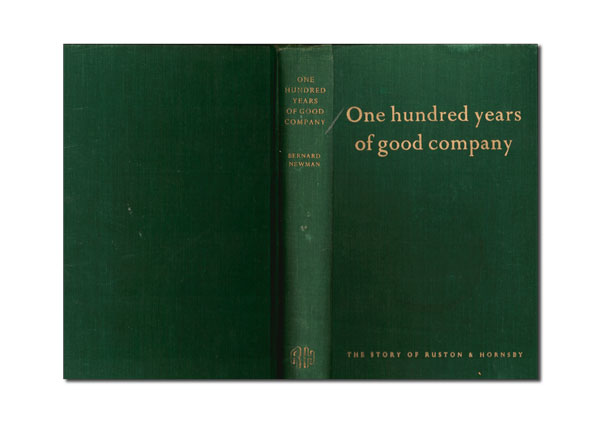Description
This is one of the most remarkable company histories I have ever read. From a small local foundry and millwrights business employing 25 people in 1857, during the following century it grew into a world – wide enterprise of agencies, partnerships, take – overs and subsidiaries in every continent. It was one of the first British companies to do substantial business in Czarist Russia in the 1860s, supplying pumps for the nascent oil industry. It taught American Big Business a thing or two with the formation of Ruston Bucyrus to manufacture and sell a range of steam powered excavators on both sides of the Atlantic and entered the second half of the 20th century as a pioneer in the manufacture if gas-turbines, just as it had begun the first half as a leader in the field of heavy oil internal combustion engines.
The success of the company was due in large measure to the energy and enterprise of two men. They were the founder Joseph Ruston (1835-1897) and his successor as Managing Director Johann August Bornemann who filled the post for the next 22 years. There were highly competent members of the Ruston family on the Board but the best available man got the job – there was no suggestion of “Buggin’s Turn”. The range of products produced by the firm and associates was amazing. Locomotives steam and I /c, flameproof locos for use underground in coal mines, quality motor cars, 2, 750 aircraft, 8, 000 spare aircraft engines, oil engines for use on land and sea pumps and hydraulic equipment, excavators and earth movers.
One special product of WW kept secret for many years was “White Rabbit” specified as a self propelled machine to excavate a continuous length of standard infantry trench complete with firing step impervious to rifle and machine gun fire. Needless to say the idea originated with Winston Churchill who as usual overlooked some problems. For a start White Rabbit was enormous so the chances of it being spotted by the enemy were high Secondly it was so noisy that it could be heard miles away. Finally if it could only be used out of sight and sound of the enemy meant that it was a weapon of defeat and retreat. The effect on morale of seeing trenches being dug miles behind the front line could have been catastrophic. As a footnote, Crewe loco works received an urgent order from Rustons for a huge forging beyond Ruston’s own capacity to produce. Fortunately, Crewe’s steel works which had been closed during the depression reopened for war work and was just able to cope. They were not told what the strange forging was for – or even which way up it would be installed. Only when “White Rabbit was declassified and some pictures were published did one of the Crewe engineers recognise the strange component.
One thing I must warn about. Mr. Newman has a nasty habit of reporting verbatim conversations between two individuals in the distant past, when no third party was present who could repeat it. How does the author know about the encounter let alone the words used? The conversation in the Sheffield barber’s shop which begins on page one is a case in point. Within a week the barber will have forgotten all about it, submerged by the daily patter of his trade “Got a fancy for the Derby? Anything for the weekend Sir?” See how easy it is to fall into the trap? If Joseph remembered it, did he note it in a memoir, relate the tale in a speech or was it a favourite anecdote at family gatherings? The reader deserves to be told not to be fobbed off with a couple of pages of fiction. It is bad history and lazy writing.
PREVIEW BELOW – MAY TAKE A WHILE TO LOAD.

Reviews
There are no reviews yet.